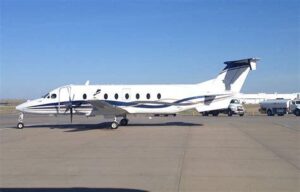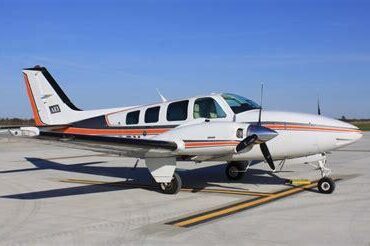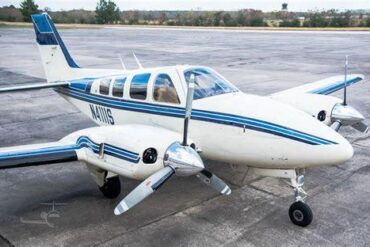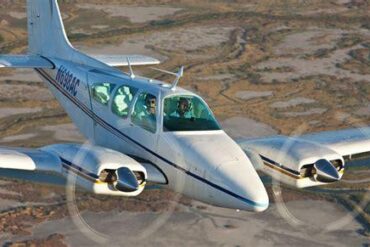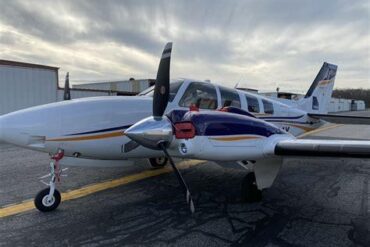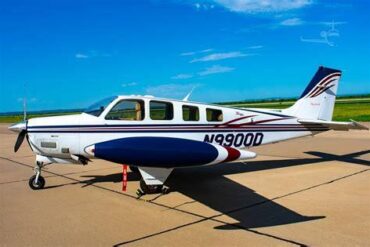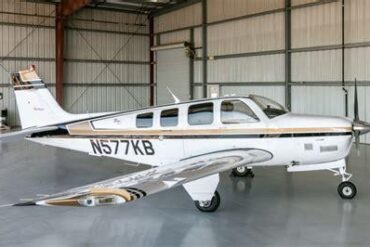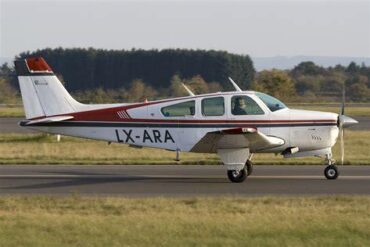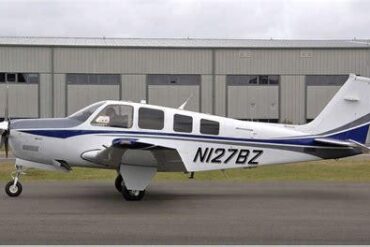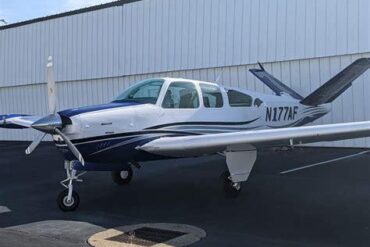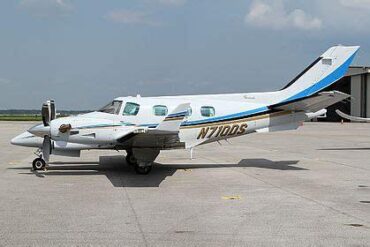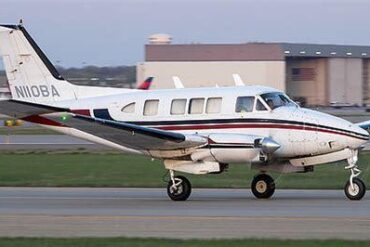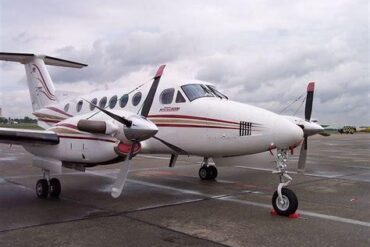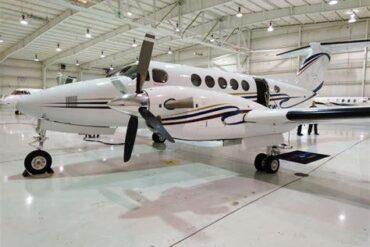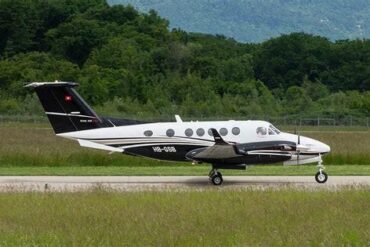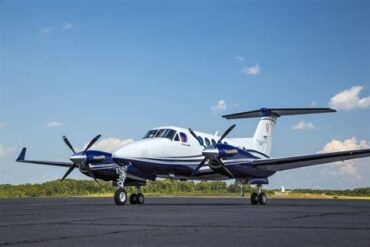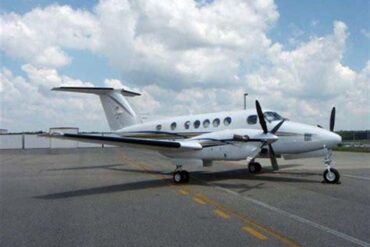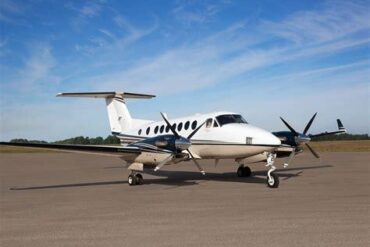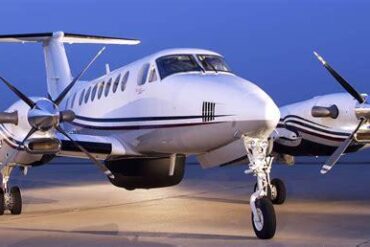The Beechcraft 1900D stands as a significant player in the world of regional aviation. Recognized for its impressive performance, reliability, and capacity, this twin-engine turboprop aircraft has become a preferred choice for airlines and private operators alike. In this article, we delve into the price of the Beechcraft 1900D, its operating costs, and essential factors that influence these financial aspects.
Overview of the Beechcraft 1900D
The Beechcraft 1900D is a 19-passenger regional aircraft that boasts a cruising speed of approximately 300 knots and a maximum range of about 1,500 nautical miles. It features a pressurized cabin, making it suitable for high-altitude flights and providing passenger comfort on longer journeys. The aircraft is powered by two Pratt & Whitney PT6A-67D engines, known for their reliability and efficiency.
When considering the purchase of a Beechcraft 1900D, prospective buyers must evaluate both the initial acquisition costs and the ongoing operating expenses. This analysis is crucial for making informed decisions that align with their operational requirements and budget constraints.
Purchase Price of the Beechcraft 1900D
The price of a Beechcraft 1900D can vary widely based on several factors, including the aircraft’s age, condition, total flight hours, and additional equipment or modifications. Typically, the purchase price of a used Beechcraft 1900D ranges from $1.5 million to $3 million. Here are some key points that influence the pricing:
-
Age and Condition: Newer models with lower flight hours command higher prices. Aircraft that have been well-maintained with comprehensive maintenance logs tend to be more valuable.
-
Modifications and Upgrades: Aircraft equipped with modern avionics, improved seating configurations, or enhanced soundproofing may also see an increase in their market value.
-
Market Demand: Economic factors and demand for regional air travel can affect the pricing of aircraft. A higher demand for regional transportation can lead to increased prices.
Operating Costs of the Beechcraft 1900D
Operating costs are a crucial consideration for any aircraft owner. The Beechcraft 1900D, while efficient, incurs several recurring expenses that can impact overall profitability. These costs can be broadly categorized into fixed and variable expenses.
Fixed Costs
Fixed costs are those expenses that remain constant regardless of flight hours. For the Beechcraft 1900D, these typically include:
-
Insurance: Depending on the coverage level and the operator’s safety record, insurance costs can range from $15,000 to $30,000 annually.
-
Hangar Fees: Storing the aircraft at a hangar can cost between $2,000 and $4,000 per month, depending on location and facility amenities.
-
Crew Salaries: If operated commercially, salaries for pilots and crew can represent a significant fixed cost. For example, a captain’s salary may range from $80,000 to $120,000 annually, influenced by experience and the operational environment.
Variable Costs
Variable costs fluctuate based on flight hours and operational variables. Key components include:
-
Fuel Costs: The Beechcraft 1900D has a fuel consumption rate of approximately 600 pounds per hour. At an average fuel price of $5 per gallon, fuel costs can total around $700 to $900 per flight hour.
-
Maintenance and Repairs: Regular maintenance is essential for safety and reliability. Operators should budget approximately $300 to $500 per flight hour for maintenance, which includes routine inspections and unexpected repairs.
-
Engine Overhaul: The Pratt & Whitney PT6A engines require periodic overhauls, typically every 3,600 flight hours. The cost of an engine overhaul can range from $400,000 to $600,000, necessitating careful planning.
Total Operating Costs
When combining fixed and variable costs, the total operating cost for a Beechcraft 1900D can range between $1,200 and $1,800 per flight hour. This estimate encompasses all the necessary expenses to keep the aircraft operational and in compliance with regulatory standards.
Factors Influencing Operating Costs
Understanding the various factors that can influence operating costs is vital for efficient budgeting and financial planning. Here are some considerations that can significantly impact the overall expenses associated with the Beechcraft 1900D:
Flight Profile
The type of missions undertaken by the aircraft greatly influences fuel consumption and maintenance schedules. For example, short-haul flights may lead to increased wear on the engines and landing gear, resulting in more frequent maintenance and repairs. Conversely, longer flights may optimize fuel efficiency but incur higher fuel costs.
Weather Conditions
Adverse weather can affect flight plans and increase fuel consumption. Flying in turbulent conditions or navigating around storms may lead to longer flight paths, resulting in higher fuel expenses and potential delays.
Pilot Experience
The skill and experience of the flight crew play a significant role in fuel efficiency and operational safety. Experienced pilots are likely to optimize flight paths, manage fuel consumption more effectively, and adhere to safety protocols, potentially reducing overall operating costs.
Regulatory Compliance
Compliance with aviation regulations can lead to additional costs, including mandatory inspections, certifications, and adherence to safety protocols. Staying updated with regulatory changes is essential for maintaining compliance and avoiding fines or operational disruptions.
Comparative Analysis with Other Aircraft
When evaluating the Beechcraft 1900D, it’s essential to consider its operating costs in comparison to similar aircraft in the regional aviation sector. For instance, the SAAB 340 and Dash 8 Q300 are direct competitors, each with unique operational profiles and cost structures.
Beechcraft 1900D vs. SAAB 340
-
Purchase Price: The SAAB 340 generally has a slightly higher purchase price, ranging from $2 million to $4 million.
-
Operating Costs: The SAAB 340 has comparable operating costs but may require more expensive maintenance due to its larger size and more complex systems.
-
Passenger Comfort: The Beechcraft 1900D often provides a more comfortable ride due to its pressurized cabin and lower noise levels compared to the SAAB 340.
Beechcraft 1900D vs. Dash 8 Q300
-
Purchase Price: The Dash 8 Q300 typically costs between $3 million and $6 million, reflecting its newer technology and larger capacity.
-
Operating Costs: While the Dash 8 Q300 offers greater passenger capacity, its operating costs per seat may be lower, making it more attractive for operators focusing on high-demand routes.
-
Performance: The Dash 8 Q300 has superior climb performance and fuel efficiency, which can offset higher acquisition costs in specific operational contexts.
Conclusion
In conclusion, the Beechcraft 1900D presents an attractive option for regional operators seeking a reliable and efficient aircraft. With a purchase price ranging from $1.5 million to $3 million and total operating costs between $1,200 and $1,800 per flight hour, it offers a balance of affordability and performance. However, potential buyers and operators must carefully analyze their operational requirements, market conditions, and financial capabilities to ensure a successful investment. By understanding the intricacies of operating costs and comparing the Beechcraft 1900D with its competitors, stakeholders can make informed decisions that align with their strategic goals in the aviation sector.
